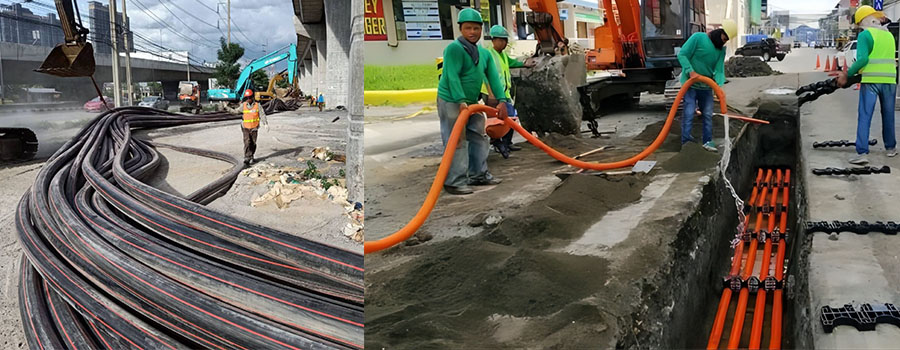22
Nov
Why Choose HDPE Electrical Conduit Pipe Over Metal Options
In the realm of electrical installations, the choice of conduit material plays a crucial role in ensuring safety, durability, and efficiency. High-Density Polyethylene (HDPE) electrical conduit pipes have emerged as a formidable alternative to traditional metal options. This article delves into the reasons for choosing HDPE electrical conduit pipes, supported by industry data and expert insights.
HDPE Vs Metal Conduits Properties Comparison:
| Feature | HDPE Conduit | Metal Conduit |
| Corrosion Resistance | Excellent; does not corrode | Varies; prone to rust and corrosion |
| Weight | Lightweight | Heavier |
| Flexibility | Highly flexible; easy to install | Rigid; requires more effort to install |
| Electrical Insulation | Non-conductive; safer | Conductive; requires grounding |
| Cost | Generally cost-effective | Can be more expensive |
Advantages of HDPE Electrical Conduit Pipe
- Durability and Longevity: HDPE is highly resistant to environmental factors such as moisture, chemicals, and UV radiation, leading to a longer lifespan.
- Safety: Being non-conductive, HDPE conduits enhance safety by reducing the risk of electrical accidents.
- Ease of Installation: The lightweight and flexible nature of HDPE makes installation quicker and less labor-intensive.
- Cost-Effectiveness: HDPE conduits often come with a lower total cost of ownership due to reduced maintenance and installation costs.
Environmental Considerations
HDPE, being a recyclable material, presents a more environmentally friendly option compared to many metals. Its production and disposal have a lower environmental impact.
Recent industry reports (source: Industry Research Co.) highlight a growing trend towards the adoption of HDPE conduits. The global HDPE market is expected to see significant growth, driven by the electrical and telecommunications sectors.
HDPE electrical conduit pipes offer a combination of safety, durability, cost-effectiveness, and environmental friendliness, making them a superior choice over traditional metal options. As the industry evolves, HDPE is poised to become the standard for modern electrical installations.


